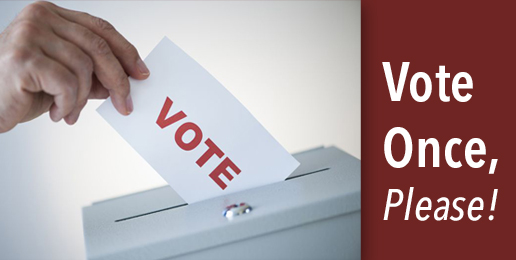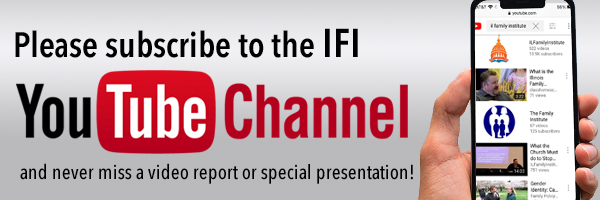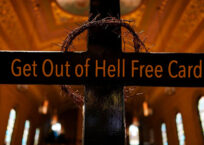
One of our Facebook friends, with whom I served on a church council, posted an invitation to visit his church on October 20th for a “politically” themed sermon. Oh, that can be dangerous.
We decided to watch online.
We’ve visited the church a few times. It’s called Harvest New Beginnings and is located in Oswego, IL. (Not connected in any way to the Harvest churches of James MacDonald days in Chicago.) Their senior pastor is Scott Poling. He’s been there for years—helping the church transition from a traditional Baptist congregation to a thriving multi-service, evangelistic, and welcoming fellowship.
For this service Pastor Poling shows up on stage dressed as Uncle Sam. For any newbies, that could have killed the deal. It did look a bit corny to me. The outfit was ditched after a few minutes of opening comments and the graphic of Uncle Sam changed to “Uncle Scott.”
Okay. Another wince. But we move on.
Pastor Poling said up front that he was going to talk about “who to vote for and why.” Getting nervous yet? Pastors and churches are not be in the political endorsement business—an established policy ignored by many depending on numerous factors and the riskiness of your church leadership.
The pastor explained that no names would be endorsed. Whew!
To help shepherd our thinking on this issue, “Uncle Scott” had a handout. It was appropriately titled “Who To Vote For & Why,” or those of us watching online, we were offered a QR code which allowed us to access the fill-in-the-blanks evaluation form.
Rhonda and I checked in.
This linked me to a site that immediately found a connection. The church not only provided the “Presidential Scorecard” (the basis for the sermon) but also further links to four voter guides—including one from the Illinois Family Institute! These guides frequently identify political candidates with their known positions on important issues.
Our job as congregants—both in person and on line—was to make decisions and score fourteen areas that the Bible would help “qualify” one for public office. “Uncle Scott” would supply Scripture for each area. If you clicked on the link I supplied above, you will find the fourteen items to make your decision on the scorecard.
In the far left column, you would write the name of candidate #1. In the right column, you write the name of candidate #2. If a candidate embodies the quality listed, they get 10 points. If they “lean” toward having convictions in that area, five points. Toss up? Zero points.
Here are the 14 criteria offered for your vote:
You would then total the points at the bottom of the sheet and voila—a clear decision should emerge!
Note that while this method could be applied to any candidate running for public office, many of us have not a single clue on their abilities or views in these areas. We often have ballots with single candidates! I call these, “coin flip candidates.” That’s why voter guides can be particularly useful.
What Pastor Scott Poling was certainly attempting to do is to encourage his audience to carefully weigh important moral considerations in their voting—not just political parties. He concluded his message by strongly advocating for candidates who supported the right to life—caring for the most vulnerable in our society in a mother’s womb.
The Bible doesn’t actually tell us to vote or not to vote in elections. In Jesus’ day, there wasn’t much choice in politics! In Deuteronomy 1:13, God instructs Moses,
“Choose for your tribes wise, understanding, and experienced men, and I will appoint them as your heads.” (ESV)
And be assured of this,
“When the righteous thrive, the people rejoice; when the wicked rule, the people groan.” (Proverbs 29:2, NIV)
I like citing one more verse, but I risk getting tomatoes thrown my way. In Ecclesiastes 10:2, Solomon writes,
“The heart of the wise inclines to the right, but the heart of the fool to the left.”
(I’m now ducking.)
Bottom line? This is your final call.
Vote. It’s a treasured freedom.
But only vote once, please.

























